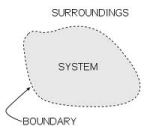 Joan Baez is an old favorite of mine. I bought an album of hers and mixed it in with the other songs on my I-phone. One day as I was out walking, I heard this song – Prison Trilogy. It was so strong, I have to tell you about it. I’ll put all the lyrics below.
Joan Baez is an old favorite of mine. I bought an album of hers and mixed it in with the other songs on my I-phone. One day as I was out walking, I heard this song – Prison Trilogy. It was so strong, I have to tell you about it. I’ll put all the lyrics below.
The song talks about three inmates and it’s honest. It doesn’t gloss over the crimes of one or the drug addiction of another. The third inmate is an old man. When he leaves the prison after many years, the police stop him and tell him he’s got another ten to do.
In modern times, this is called “Gate-ing” – Confront someone at the gate with new charges.
The chorus is the thing that is very strong: And we’re gonna raze, raze the prisons
To the ground” see footnote
I’m not there yet. This is the position of those who say that the best tool for prison reform is a bulldozer. I don’t agree. There are a minority – maybe 15 % — of inmates who should NOT be let out of prison until they are reformed.
Let the song speak for itself
Prison Trilogy Lyrics
Joan Baez
(Words and Music by Joan Baez)
Billy Rose was a low rider, Billy Rose was a night fighter
Billy Rose knew trouble like the sound of his own name
Busted on a drunken charge
Driving someone else’s car
The local midnight sheriff’s claim to fame
In an Arizona jail there are some who tell the tale how
Billy fought the sergeant for some milk that he demanded
Knowing they’d remain the boss
Knowing he would pay the cost
They saw he was severely reprimanded
In the blackest cell on “A” Block
He hanged himself at dawn
With a note stuck to the bunk head
Don’t mess with me, just take me home
Come and lay, help us lay
young Billy down
Luna was a Mexican the law called an alien
For coming across the border with a baby and a wife
Though the clothes upon his back were wet
Still he thought that he could get
Some money and things to start a life
It hadn’t been too very long when it seemed like everything went wrong
They didn’t even have the time to find themselves a home
This foreigner, a brown-skin male
Thrown into a Texas jail
It left the wife and baby quite alone
He eased the pain inside him
With a needle in his arm
But the dope just crucified him
He died to no one’s great alarm
Come and lay, help us lay
Young Luna down
And we’re gonna raze, raze the prisons
To the ground
Kilowatt was an aging con of 65 who stood a chance to stay alive
And leave the joint and walk the streets again
As the time he was to leave drew near
He suffered all the joy and fear
Of leaving 35 years in the pen
And on the day of his release he was approached by the police
Who took him to the warden walking slowly by his side
The warden said “You won’t remain here
But it seems a state retainer
Claims another 10 years of your life.”
He stepped out in the Texas sunlight
The cops all stood around
Old Kilowatt ran 50 yards
Then threw himself down on the ground
They might as well just have laid
The old man down
And we’re gonna raze, raze the prisons
To the ground
Help us raze, raze the prisons
To the ground
What do you think? Should we raze the prisons to the ground?
Images courtesy of:
- starpulse.com
raze — verb (used with object), razed, raz·ing. to tear down; demolish; level to the ground: to raze a row of old buildings.














